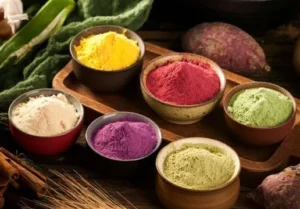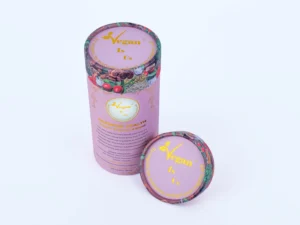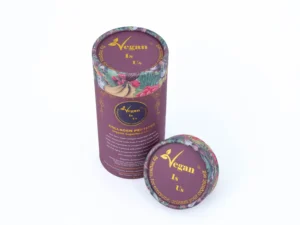Last updated on September 13th, 2023
What are Vegan Multivitamins?
Vegan multivitamins are dietary supplements that provide a comprehensive range of essential vitamins and minerals. They are derived entirely from plant-based sources and designed to meet the nutritional needs of individuals following a vegan lifestyle while avoiding any animal-derived or their by-products such as gelatine, shellac, or certain vitamins and minerals that are traditionally sourced from animal origins.
Why Choose Plant-Based Vitamins and Supplements?
Natural plant-based vitamins and supplements are becoming increasingly popular among individuals who follow a vegetarian or vegan diet, have dietary restrictions, or simply prefer a more natural approach to supplementation. Living a healthy lifestyle is a goal that many of us strive to achieve. We want to feel good, have plenty of energy but the key factor in maintaining good health is ensuring that our bodies receive all the necessary nutrients to the thrive and plant based nutrients has been shown to support optimal health as well as reduce the risk of developing chronic diseases.
Vegan plant-based vitamins and supplements play a crucial role in providing the body with the key nutrients it needs from plant based sources, making them a great alternative to synthetic supplements. They are easy to digest, environmentally friendly; offering a cruelty free and sustainable way to support our overall well-being naturally.
Whilst vegans can meet their nutritional needs through a well-planned, plant-based balanced diet, It’s equally important to pay attention to the nutritional profile of the formula when considering supplementation to ensure they are of highest quality such as Vegan Is Us organic sustenance superfoods and certified by an a reputable organic body.
We explore some common natural plant-based vitamins and supplements and their benefits in this blog:
Vitamin C
An essential antioxidant vitamin that helps boost the immune system, promote collagen production, and support overall health. Plant-based vitamin C supplements are often sourced from citrus fruits, rosehips, acerola cherries, gooseberry etc providing a natural, sustainable and effective way to meet your daily vitamin C needs.
Vitamin D
Vegans should consider a vitamin D supplement, particularly during the winter months or if they live in areas with little sunlight as it can be challenging to obtain from food sources, especially if you have limited sun exposure given that vitamin D is crucial for maintaining healthy bones, regulating mood, and supporting immune function. While vitamin D3 is commonly derived from lanolin, a component of sheep’s wool, plant-based options like vitamin D2 are available. Some of these plant sources are alfalfa, mushroom, fungi and yeast, making it a suitable choice for vegans.
Iron
Iron is an essential mineral that plays a key role in oxygen transport, energy production, and immune function. Plant-based iron supplements are often sourced from kale, spirulina, lentils, spinach, and other iron-rich plant foods. These natural plant based source provides excellent source for vegans and especially beneficial for individuals with iron-deficiency anaemia.
Calcium
Calcium is essential for maintaining strong bones and teeth, as well as supporting muscle function and nerve transmission. Plant-based calcium supplements are sourced from leafy greens, nuts, algae, providing a sustainable and vegan-friendly alternative to traditional dairy-based options.
Omega-3 Fatty Acids
Omega-3 fatty acids are vital for brain health, heart health, and reducing inflammation in the body. Plant-based sources of omega-3s include flaxseeds , walnuts and chia seeds, which are rich in alpha-linolenic acid (ALA) which are essential for brain and heart health.
B Vitamins
B vitamins play a crucial role in energy production, nerve function, and DNA synthesis. B12 supplements for vegans are typically derived from bacterial fermentation processes but many B vitamins can be obtained from plant sources like beetroot, mushrooms, goji and aronia berries and many more, making them suitable for vegans.

Organic Superfoods
Zinc
Vegans can get zinc from legumes, nuts, seeds, and whole grains, although phytates in plant foods can inhibit zinc absorption. Some vegans may need a zinc supplement if their intake is consistently low which support the immune system and metabolism function.
Herbal Supplements
Herbal supplements derived from various plant parts offer a range of health benefits. Turmeric (curcumin), ginger, ceylon cinnamon, echinacea, green tea and ginseng which are nutrient powerhouse are just a few examples. These supplements can support immune function, reduce inflammation, improve digestion, and more.
Protein Powders
For individuals looking to increase their protein intake without animal products, plant-based protein supplements are a great choice. Pea protein, hemp protein and flaxseed etc are common sources of vegan protein and used in superfood such as organic protein peptides with dense nutritional profile that supports muscle growth and general wellness.
Probiotics
Probiotics are beneficial bacteria that support gut health and immune function. Some probiotic supplements are derived from fermented plant-based sources like sauerkraut, kimchi, or kombucha, providing a natural way to support a healthy gut.
Other Nutrients
Depending on individual dietary habits and health conditions, vegans should monitor their intake of nutrients like iodine, selenium, choline and consider supplements if they’re not getting enough from their diet. See Vegan Is Us superfoods ingredients for more of the organic plant based sources to meet your nutritional and dietary needs.
Choosing the Right Plant-Based Multivitamin Supplements:
Choosing vegan plant-based vitamins and supplements is a powerful way to support your overall wellness. By incorporating these natural and sustainable options into your routine, you can nourish your body with essential nutrients while promoting a greener and more ethical future. Look for products that are certified as organic, vegan or vegetarian if that’s your preference.
Additionally,It’s important to read labels carefully and do pay attention to the dosage and serving size suggestions to make sure it aligns with your dietary needs and preferences. Consider the quality and purity of the ingredients to ensure there are no unnecessary additives, fillers, or artificial preservatives. The fewer additional ingredients, the better although the effectiveness can vary between brands and products, so do your research and choose trusted brands that prioritise quality.
Remember, a balanced diet with a variety of whole plant foods should always be the primary source of nutrients. Supplements should only be used to fill specific nutritional gaps when necessary and consult with a healthcare professional if you have specific nutritional needs or health concerns.







